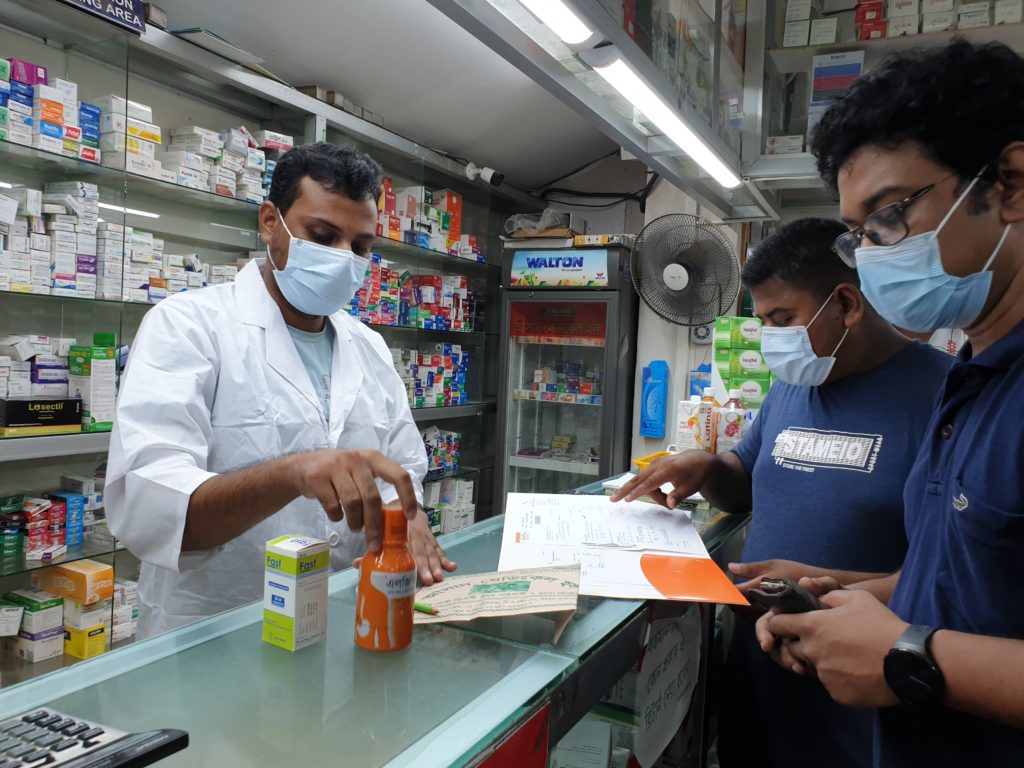Amid Pandemic, Pivoting Online to Train Essential Pharmacists in Bangladesh
Amid Pandemic, Pivoting Online to Train Essential Pharmacists in Bangladesh

An ambitious effort to train thousands of private retail medicine dispensers in Bangladesh on Good Pharmacy Practices (GPP) was just getting started when the pandemic threw a wrench into plans in early 2020.
“The training was originally set to be in person. Then COVID-19 hit,” explained Raian Amzad, technical adviser at the Better Health in Bangladesh (BHB) project, led by Management Sciences for Health. “We could have stepped back and delayed, but we decided to modify instead.”
The pivot highlights the resilience of those working on the project, as university teachers and pharmacy professionals got to work to familiarize participants largely living in rural areas with Zoom and other rarely used technologies. Those without computers were able to use their phones for the 10-day program.
“If it was not for COVID, we would not have adopted these new technologies so quickly,” Raian noted.
Retail medicine dispensaries are a primary source of health care and treatment in Bangladesh. More than 150,000 licensed outlets are scattered throughout the country, according to the
Directorate General of Drug Administration of Bangladesh, and there are perhaps as many unlicensed outlets as well.
Many working in the shops lack guidance on GPP, which can lead to medication errors, drug expirations, and other challenges.
To build the skills and capacity of these outlets, BHB has partnered with the government and communities to accredit thousands of them in 32 districts since 2018. Funded by the UK’s Foreign, Commonwealth and Development Office, the project builds on the work MSH help launch in 2003 in Tanzania that has since been adopted throughout Africa and Asia.
Accreditation involves meeting quality standards like maintaining a registry to sell antibiotics and not dispensing them without a prescription, refrigeration of applicable medicines, labeling of medicines, proper disposal procedures of medicines, and standards for archiving invoices.
The medicine dispensers must pass preliminary assessments to qualify, and then move on to training in pharmacy services, such as accurate dispensing and counselling.
Even amid the tumult of 2021, BHB surpassed many of its goals.
For example, it performed initial assessments, the first step toward accreditation, on 10,697 outlets, against a target of 10,000. During this stage, the pharmacies must pass a baseline level test, including drug license validation and meeting physical infrastructure requirements, to participate.
Those meeting the criteria move onto the training phase. BHB trained more than 6,200 dispensers on GPP, exceeding its target of 6,000.
The effort paid off: Significant improvement in knowledge was seen by pre- and post-test examinations in March 2022. Over the past year, 90% of those recommended by BHB ultimately won accreditation by the country’s drug regulator as a Model Medicine Shop.
In the end, the program is about making sure patients have access to quality and safe medicines at these neighborhood medicine stores that serve as a backbone for public health for so many.
Looking to the future, the project is working on a study to assess GPP knowledge, attitudes, and practices of the trained dispensers to further build on lessons learned. Project staff are confident it will meet its 2022 goal to accredit 6,000 medical outlets by the end of September.